The 2019 NFL draft has come and gone, and now we can focus on how those 254 prospects fit into their new teams' plans. Yes, several first-round picks will be guaranteed starters when training camp begins, but the league's best teams find multiple starters throughout their class. Just look at what the Colts did in 2018.
By now hopefully you've seen my draft grades for all 32 teams, and now let's evaluate the rookies I think will make an early impact, from each day of the draft. This is more about having a clear role, not coming in and dominating from the outset.
Here are 15 rookies selected in Rounds 1-7 who will make an immediate impact:
Round 1
Here are five prospect-to-team fits I really liked in the first round:

Ed Oliver, DT, Buffalo Bills
Pick: No. 9
My pal Louis Riddick said on TV several times over the past few months that Oliver was used incorrectly in college. Why is an athlete like Oliver -- he has one of the fastest first steps off the ball of any defensive tackle I've ever scouted -- playing nose tackle? Buffalo will play him as a 3-technique tackle in its 4-3 defense, in place of the retired Kyle Williams, and he's going to be a disruptive presence. No, he's not Aaron Donald like some were calling him last summer -- he is still developing consistent pass-rush moves -- but Oliver will destroy double-teams and cause wreckage in the backfield.
Because of the Bills' offensive struggles in 2018, the defense went under the radar; it was the top-ranked pass defense, allowing only 179.2 yards per game, and gave up only 294.1 total yards per game. This is a young, talented and physical group. Oliver fills an immediate need.

Garrett Bradbury, C, Minnesota Vikings
Pick: No. 18
Yes, offensive linemen picked in the first round are supposed to start on Day 1 with their new teams. But I want to highlight Bradbury here because of the way he instantly makes the Vikings better. Quarterback Kirk Cousins was just OK last season, but it was the Minnesota running game that disappointed most, as its 93.3 yards per game ranked 30th in the league. And in the Vikings' new zone-blocking scheme, the athletic Bradbury is a perfect fit at center, allowing Pat Elflein to move to guard. That helps turn a huge weakness into a potential strength.
With an improved running game, Cousins will be improved, too. And in Year 2 of his three-year deal, the offense must be more complete for the Vikings to get back to the playoffs.
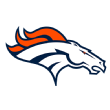
Noah Fant, TE, Denver Broncos
Pick: No. 20
It usually takes time for tight ends to adjust to the NFL, mostly because of their inability to block. But don't think of Fant as a traditional tight end. New offensive coordinator Rich Scangarello could use Fant in the slot as a true receiver, much like the Giants did with Evan Engram as a rookie in 2017, when he caught 64 passes and scored six touchdowns. Fant and Engram are similar athletically, though I don't expect Fant to get 115 targets in Year 1 like Engram did.
Fant will compete for snaps with Jake Butt, Jeff Heuerman and Troy Fumagalli at tight end, but he could play a role as a No. 3 receiver too, while he works to improve as an inline blocker.
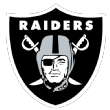
Josh Jacobs, RB, Oakland Raiders
Pick: No. 24
This is an easy one, right? Isaiah Crowell is out for the season. Doug Martin is back, but he's declining. Marshawn Lynch is gone. That means there's a hole atop the Raiders' running back depth chart. You should know by now that I don't love taking running backs in the first round, but this was such a Jon Gruden pick. Jacobs is a grinder, a complete back who breaks tackles and can catch passes. He can play on third down. He had just 291 career touches from scrimmage at Alabama, so he has limited tread on his tires. Jacobs' best is yet to come.
It's a different time, of course, but Gruden once gave a rookie first-round pick a whopping 310 touches. That would be No. 5 overall pick Cadillac Williams, who rushed for 1,178 yards and six touchdowns in 2005. Could Jacobs come close to that workload in 2019?

Deandre Baker, CB, New York Giants
Pick: No. 30
I was tough on the Giants in my draft grades, but it wasn't because of the decision to trade back into the first round to take Baker, who started 35 games in his career at Georgia. He is the most pro-ready of the top group of cornerbacks in this class, and he can be a legitimate No. 1 corner. He's going to play early and often for a New York defense that allowed 61 receptions of at least 20 yards last season, the second-most such passes in the league.
Janoris Jenkins has one corner spot locked down, but the other side is wide-open, with 2018 supplemental draft pick Sam Beal and rookies Julian Love and Corey Ballentine also competing with Baker.
Rounds 2 and 3
Teams can find instant starters on Day 2 of the draft. Here are five prospects who should play early and often as rookies.

Jawaan Taylor, OT, Jacksonville Jaguars
Pick: No. 35 (Round 2)
This is simple. Taylor started 33 games at Florida at right tackle, and Jacksonville has a gaping hole at right tackle. Taylor can be a plug-and-play starter there, and he was a steal at the top of Round 2.
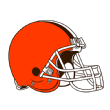
Greedy Williams, CB, Cleveland Browns
Pick: No. 46 (Round 2)
There was a lot of talk about what Williams didn't do at LSU in 2018, and it was centered around his unwillingness to tackle. But what Williams did do was lock down pass-catchers; opposing quarterbacks completed just 33.8 percent of their passes against him, which ranked first in the FBS. Williams' ability to stick to and run with receivers is elite, and that's why he could start on the other side of Denzel Ward.
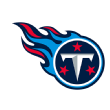
A.J. Brown, WR, Tennessee Titans
Pick: No. 51 (Round 2)
Question: Can you name the last Titans wide receiver to get to 1,000 receiving yards in a season? Answer: It was Kendall Wright in 2013, and it's the longest active drought among NFL teams.
While former No. 5 overall pick Corey Davis has shown flashes of his high ceiling, he has been inconsistent. Brown, who had 2,572 total receiving yards in the SEC over the past two seasons, could contribute as a rookie, as the Titans will use the season to evaluate quarterback Marcus Mariota in a make-or-break year. Mariota will need all of the options he can get, and Brown can play in the slot and outside.

David Montgomery, RB, Chicago Bears
Pick: No. 73 (Round 3)
Likely to be a dark-horse candidate for Offensive Rookie of the Year, Montgomery is a great fit for a Bears backfield that lost both Jordan Howard and Benny Cunningham this offseason. Remember, though, that Chicago running backs averaged just 3.8 yards per carry last season, so this is a position that could be improved. Tarik Cohen will get his share of touches in 2019, but it will be Montgomery and veteran Mike Davis competing for first- and second-down carries. I like Montgomery's chances of winning the starting job.

Justin Layne, CB, Pittsburgh Steelers
Pick: No. 83 (Round 3)
I was surprised Layne lasted this far into the draft. I put him at No. 29 in my final mock draft, and I thought he'd go in the top 40. I love this fit in Pittsburgh, where the team brought in free agent Steven Nelson, and former first-rounder Artie Burns took a step back last season. The Steelers intercepted only eight passes in 2018, and Layne, a converted wide receiver, had 19 pass breakups over the past two seasons. Every team needs cornerback depth in this pass-happy era of the NFL.
Rounds 4-7
The NFL's best teams find good players on Day 3 of the draft. While running backs are usually a popular pick to make an immediate impact, I wanted to focus on five players who could fill specialized roles in 2019:

Tony Pollard, RB/WR/KR, Dallas Cowboys
Pick: No. 128 (Round 4)
The Cowboys had to get a No. 2 running back in this draft. Ezekiel Elliott is a workhorse, but he rarely left the field last season. That can't last. Enter Pollard, who can be a threat in multiple areas. Pollard split time at running back at Memphis with third-round pick Darrell Henderson, and he made his biggest impact as a receiver (104 receptions over the past three seasons) and return man (seven career kickoff return touchdowns). Dallas will hope he can spell Elliott on third downs and improve its special teams.
Mel Kiper Jr. breaks down the running back selections from Day 3 of the NFL draft who could have the greatest impact on their teams this season.

Greg Gaines, DT, Los Angeles Rams
Pick: No. 134 (Round 4)
This pick is all about filling a specialized role on first and second downs. There weren't many true nose tackles in this class, especially outside the first two rounds. The 312-pound Gaines, though, can replace free agent Ndamukong Suh at the nose in Wade Phillips' defense. Gaines won't do much as a penetrator, but he will help plug the middle of a leaky defense that allowed an NFL-worst 5.1 yards per rush last season.

Justin Hollins, OLB, Denver Broncos
Pick: No. 156 (Round 5)
New coach Vic Fangio has taken over a 3-4 Broncos defense led by outside linebackers Von Miller and Bradley Chubb, but the roster isn't loaded with talent. Denver has to get help spelling Miller and Chubb. That's where Hollins, who forced six fumbles and had 14.5 tackles for loss last season, comes in. At 6-foot-4, he is still growing into his frame, but he should get some snaps to get after quarterbacks as a rookie.

D'Andre Walker, OLB, Tennessee Titans
Pick: No. 168 (Round 5)
With Derrick Morgan and Brian Orakpo gone, Tennessee needed edge-rushing depth for its 3-4 defense. Harold Landry and Cameron Wake have the starting spots locked down for 2019, but Walker could be a rotational player as a rookie. The Georgia product, who ranked No. 100 overall on my final Big Board, had an inconsistent career, but he flashed a high ceiling last season, finishing with 7.5 sacks. He is also stout against the run. Walker should be recovered from the double hernia surgery he had in January.
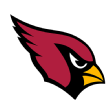
KeeSean Johnson, WR, Arizona Cardinals
Pick: No. 174 (Round 6)
The new-look Cardinals took three wide receivers in this class, but I'm going to focus only on the final one. Johnson was one of college football's most productive receivers over the past four seasons, catching 275 passes for 3,463 yards. He is a natural pass-catcher, even if he doesn't have ideal speed (4.60 seconds in the 40-yard dash at the combine). This depth chart will be tough to crack, but he could carve out a role as a third-down target. He also should contribute on special teams.
